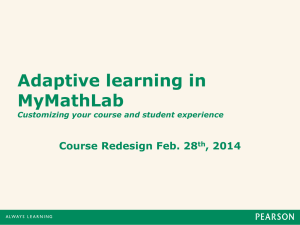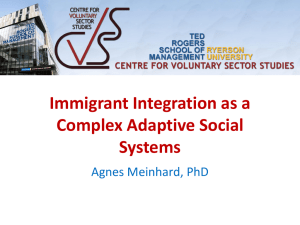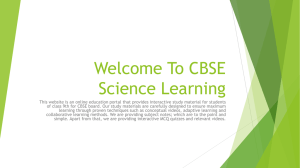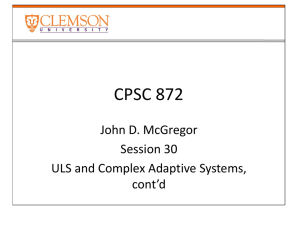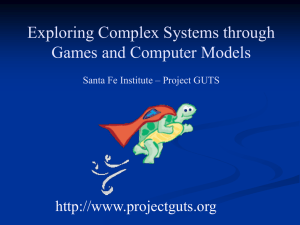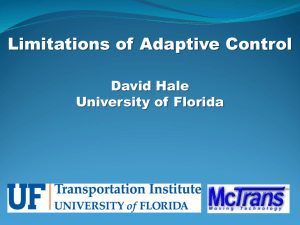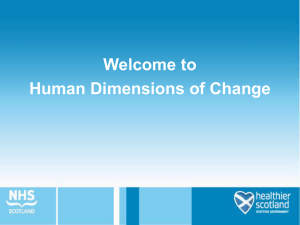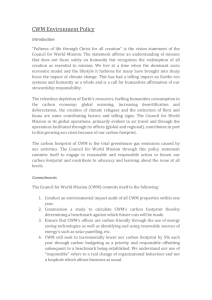Best Management Practices
advertisement
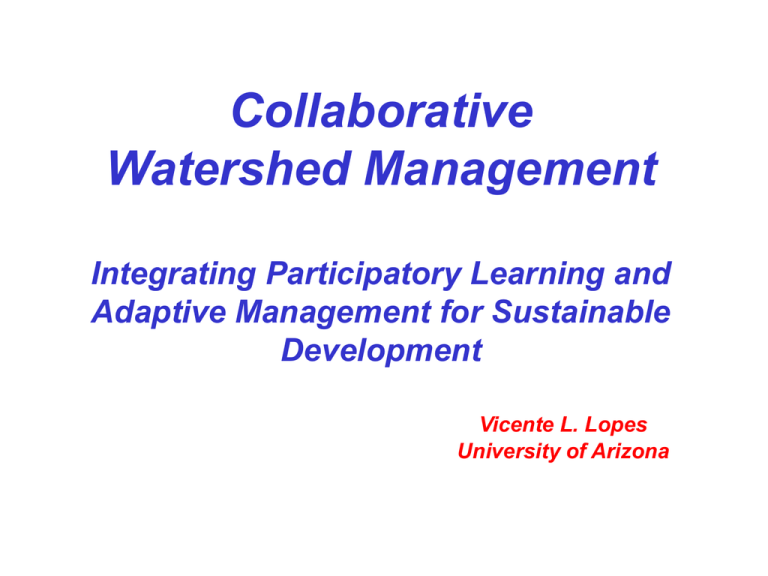
Collaborative Watershed Management Integrating Participatory Learning and Adaptive Management for Sustainable Development Vicente L. Lopes University of Arizona Crisis in Resource Management Science • Management practices are universal and are independent of social context. • New technologies better that those from the past and represent “progress.” • Erosion occurs because farmers are poor managers of soil and water resources. These views are deeply imbedded in the Western worldview as developed in Europe in the 17th century. The Western Worldview • A mechanistic view of the natural world, based primarily on Descartes’ philosophy, Bacon’s scientific method and Newton’s mathematics (= Newtonian Worldview). • It says that complex phenomena can be studied and controlled by reducing them to their basic building blocks (= Reductionism). • Reductionism ultimately extends to humans, with humans as agents obeying mechanistic laws. How has the Newtonian Worldview affected Resource Management? • Management approaches presume that knowledge is sufficient; that consequences of policy implementation are predictable. • Resources thought to be valuable only to the extent that they create wealth (= Utilitarianism). • A belief in unlimited material progress through economic growth and technological progress. How has the Newtonian Worldview failed Resource Management? • The new science divorced users from management: • Stakeholders not involved in analysis and decision-making; • Management strategies based on land capability rather than on the capacities and needs of people. • Management strategies based on partial perspectives of scientific disciplines; lack of a framework for integration. The Purpose of the Seminar To introduce a framework for resource management that overcomes disconnects due to reductionist constructs. It involves rethinking resource management science • in a world of uncertainty and surprise using systems approaches and adaptive management. • by focusing on participatory learning and dialectic decision making. Collaborative Resource Management - Learning by Doing - • Is an adaptive process; • Founded on constructivism (as opposed to reductionism); • Based on systems approaches; • Acknowledges participatory learning; • Uses a dialectic decision-making process. Advantages of Implementing CRM at the Watershed Scale • The watershed is a natural unit for integrating environmental, social and economic aspects of waterrelated problems. • An appropriate scale for dealing with conservation and enhancement of soil and water resources. • There is a traditional recognition that natural resources are part of interconnected systems and dependent on wholeecosystem (watershed) health. Informing Disciplines Constructivist Philosophy Adaptive Systems Theory CRM Participatory Learning Adaptive Management Constructivism “… realities exist in the form of multiple constructions, socially and experimentally based, local and specific, dependent for their form and content on the persons who hold them…” - Guba (1990:27) Lessons from Constructivism • The world is not just a perception but an interception. • All truths are context-dependent, and contexts are boundless. • No one understanding is complete, an integrated view includes multiple perspectives. • An exclusive method applied widely impoverishes our vision of reality and excludes alternative solutions. Participatory Learning A dialectic, hermeneutic (meaning-making) process consisting of repeated cycles of reflection and action, in which participants seek to answer a question of importance to them. Lessons from Participatory Learning • Stakeholders included in all phases of the management process. • Decisions achieved through a dialectic process between stakeholders. • Experimental results interpreted through interactions and owned by all the stakeholders. Adaptive Systems Theory • Social-ecological systems are unpredictable because they contain numerous nested non-linear feedbacks. • These systems go through adaptive cycles of growth, maturation, destruction and renewal (Gunderson & Holling 1998). • Threshold dynamics can cause unforeseen sudden changes (surprise) that affect people’s health, ecosystem productivity and social vitality. Lessons from Adaptive Systems • Conserving the current state of ecosystems cannot be the goal for resource management. • The goal is to be able to adapt to change, uncertainty and surprises. Adaptive Management “… a systematic process for continually improving management policies and practices by learning from the outcomes of operational programs...” - Nyberg (1998) Adaptive Management Cycle Identify the needs Evaluate results Monitor the outcome Design/adjust a plan of action Implement the plan Lessons from Adaptive Management • Current knowledge treated as operating hypotheses. • Management policies and practices must be evaluated against experimental outcomes. • Management goals may change with experience or with shifts in social priorities. How would the new approach change Watershed Management? • Watershed research and development would reflect the different views and objectives of local stakeholders. • It would focus on the interactions of humans with each other and with their natural environment rather than exclusively on the natural resources. • Stakeholders would become experts, instead of being mere receivers of expert opinion. Best Management Practices (Traditional Approach) Developed as generalized “truths.” Identified by scientists through objective scientific methods. Best Management Practices (Traditional Approach) Derived as generalized “truths.” Identified by scientists through objective scientific methods. Best Management Practices (Collaborative Approach) Developed for each of the individual contexts. Identified though collaborative inquiry involving scientists, policy makers and stakeholders. Best Management Practices (Collaborative Approach) Developed for each of the individual contexts. Identified though collaborative inquiry involving scientists, policy makers and stakeholders. Challenges • Stakeholders need to embrace a collaborative dialectic process of decision making, experimentation and evaluation. • Scientists, local officials and stakeholders must all be willing to learn skills outside their area of expertise. • New language must be developed to facilitate communication across disciplines and social backgrounds. • Institutions must change modes of operation. Questions? CWM (Implementation) Forming: Initiating CWM project Ensuring diversity among participants Orienting participants Agreeing on a framework for participation CWM (Implementation) Reflecting: Developing propositions for investigation Identifying research needs/disciplinary focus Devising ways of gathering data Designing the inquiry project CWM (Implementation) Acting: Putting plans/designs into practice Collecting data/assessing project impacts Adjusting original project Starting new cycle of inquiry
